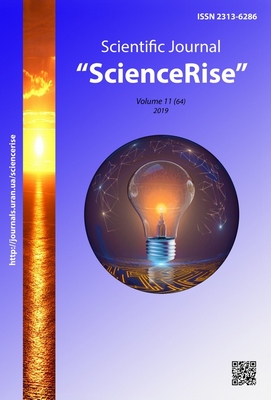Випадок статусу Косово в Балканській політиці Європейського союзу
DOI:
https://doi.org/10.15587/2313-8416.2019.187295Ключові слова:
Балкани, Європейський Союз, конфліктний менеджмент, Косово, Сербія, ЮгославіяАнотація
Політика Європейського Союзу диференціюється в залежності від організаційної природи об’єднання та інтересів держав-членів. Спільні інститути ЄС є міксом міжурядового і наддержавного аспектів Євросоюзу. Суверенізація Косово є викликом і випробуванням для міжнародного позиціонування Євросоюзу та європейської інтеграції загалом. У статті досліджені об’єктивні і суб’єктивні історичні передумови проголошення незалежності Косово від колишньої Югославії. У статті також висвітлено історичний контекст балканської політики Євросоюзу
Посилання
Sundhaussen, H. (20070. Geschichte Serbiens. 19-21. Jahrhundert. Wien. doi: http://doi.org/10.7767/boehlau.9783205117650
Rahtfelder, E. (2010). Kosovo. Geschichte eines Konflikts. Berlin, 459.
Fareed, Z. (2008). The Post-American World. New York: Norton, 259.
Pond, E. (2008). The EU’s Test in Kosovo. The Washington Quarterly, 31 (4), 97–112. doi: http://doi.org/10.1162/wash.2008.31.4.97
Lampe, J. (2004). The Lessons of Bosnia and Kosovo for Iraq. Current History, 3–10.
Ned Lebow, R. (2004).The Tragic Vision of Politics: Ethnics, Interests and Orders. New York, 424.
Vickers, M. (1998). Between Serb and Albanian: a History of Kosovo. New York, 280.
Brusis, M. (2002). The EU and its South East European neighbors. Beyond EU Enlargement, 2, 34.
Europe South East Monitor (200). 9, 45.
The Balkan and new European responsibilities (2000). 41.
##submission.downloads##
Опубліковано
Номер
Розділ
Ліцензія
Авторське право (c) 2019 Sergey Asaturov, Andrei Martynov

Ця робота ліцензується відповідно до Creative Commons Attribution 4.0 International License.
Наше видання використовує положення про авторські права Creative Commons CC BY для журналів відкритого доступу.
Автори, які публікуються у цьому журналі, погоджуються з наступними умовами:
1. Автори залишають за собою право на авторство своєї роботи та передають журналу право першої публікації цієї роботи на умовах ліцензії Creative Commons CC BY, котра дозволяє іншим особам вільно розповсюджувати опубліковану роботу з обов'язковим посиланням на авторів оригінальної роботи та першу публікацію роботи у цьому журналі.
2. Автори мають право укладати самостійні додаткові угоди щодо неексклюзивного розповсюдження роботи у тому вигляді, в якому вона була опублікована цим журналом (наприклад, розміщувати роботу в електронному сховищі установи або публікувати у складі монографії), за умови збереження посилання на першу публікацію роботи у цьому журналі.

